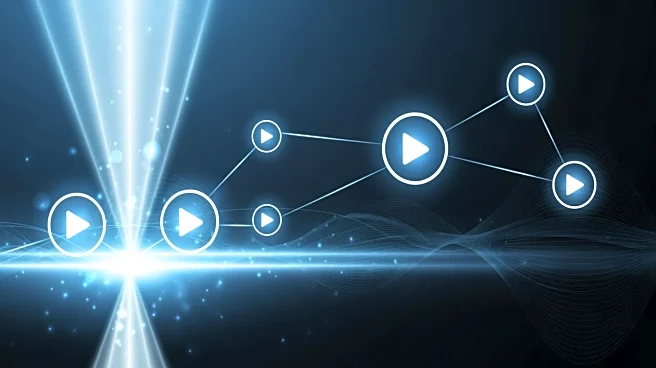What's Happening?
Disney and YouTube TV have reached a new agreement to restore Disney-owned channels, including ABC and ESPN, to the streaming platform. This resolution ends a blackout that lasted approximately two weeks, affecting YouTube TV subscribers who were unable
to access popular sports and entertainment programming. The dispute arose from failed negotiations over licensing terms, with YouTube TV accusing Disney of proposing costly terms that would lead to higher prices for subscribers. Disney countered by accusing YouTube TV of using its market dominance to eliminate competition. The blackout disrupted coverage of major sports events and other programming, prompting Disney to request temporary restoration of ABC programming for Election Day, which YouTube TV declined. The agreement marks the latest in a series of licensing disputes in the streaming industry, highlighting the challenges of renewing carriage agreements amid growing competition.
Why It's Important?
The resolution of the dispute between Disney and YouTube TV is significant for consumers who rely on streaming services for access to live programming. The blackout highlighted the impact of licensing negotiations on consumer access to content, as well as the competitive dynamics between major media companies and streaming platforms. The agreement ensures that subscribers can continue to enjoy popular Disney channels without interruption, which is crucial for maintaining customer satisfaction and loyalty. Additionally, the dispute underscores the broader challenges faced by the streaming industry in balancing content availability, pricing, and competition. As more consumers shift away from traditional cable and satellite TV, the ability of streaming platforms to secure and maintain content agreements becomes increasingly important.
What's Next?
With the agreement in place, YouTube TV subscribers can expect uninterrupted access to Disney channels, including ESPN and ABC. The resolution may also influence future negotiations between streaming platforms and content providers, as both parties seek to avoid prolonged service disruptions. As the streaming industry continues to evolve, companies may explore new strategies for negotiating licensing agreements that prioritize consumer access and competitive pricing. Additionally, the dispute may prompt discussions about regulatory oversight and market dominance in the streaming sector, as stakeholders seek to ensure fair competition and consumer protection.
Beyond the Headlines
The dispute between Disney and YouTube TV raises questions about the long-term sustainability of the current streaming model, where content providers and platforms must navigate complex negotiations to secure access to popular programming. The blackout serves as a reminder of the potential consequences of failed negotiations, including consumer dissatisfaction and loss of revenue. As the industry continues to grow, stakeholders may need to consider new approaches to licensing agreements that prioritize transparency, fairness, and consumer interests. Furthermore, the resolution may prompt discussions about the role of streaming platforms in shaping media consumption and the implications for traditional broadcasting.














